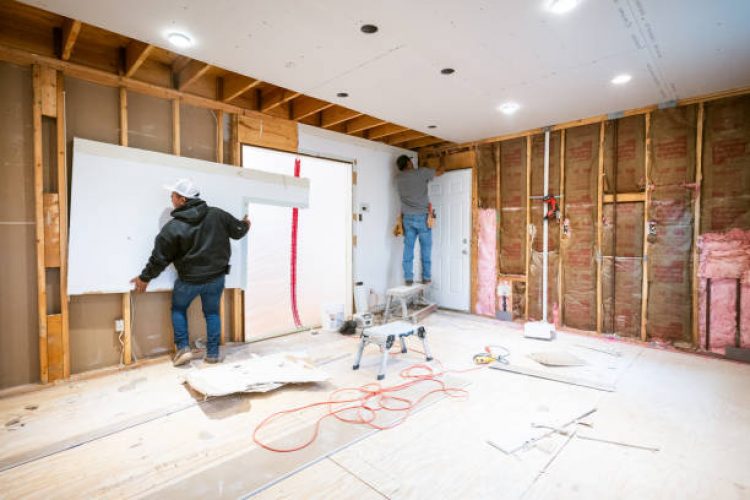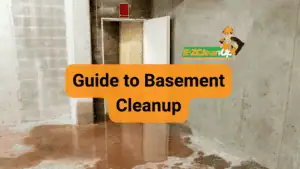When you’re planning a home improvement project—whether it’s a kitchen remodel, roof replacement, or bathroom renovation—hiring the right contractor is one of the most critical decisions you’ll make. Beyond checking references and comparing quotes, there’s one crucial factor that can mean the difference between a smooth project and a financial nightmare: contractor insurance.
Hiring a general contractor who has all the necessary insurance coverage in place gives you peace of mind. But what exactly does contractor insurance protect you from, and why is it so important? In this comprehensive guide, we’ll explore why insured crews are essential for homeowners and how proper insurance coverage protects both you and your property.
Understanding Contractor Insurance: The Basics
What Is Contractor Insurance?
Contractor insurance isn’t a single policy—it’s typically a combination of several coverage types designed to protect both the contractor’s business and the homeowner. In the event of a claim, the contractor’s insurance will essentially respond and protect you as the homeowner from a claim being made against you.
The three essential types of insurance that contractors should carry include:
- General Liability Insurance – Covers property damage and bodily injury to third parties
- Workers’ Compensation Insurance – Covers medical expenses and lost wages for injured employees
- Auto Liability Insurance – Covers vehicle-related accidents during the project
Why Hiring Insured Contractors Protects Homeowners
Protection from Financial Liability
One of the most compelling reasons to hire insured contractors is the financial protection it provides. If the subcontractor didn’t have adequate insurance and there was a claim, you could end up needing to pay potentially thousands of dollars in out-of-pocket expenses on top of your project costs.
Workers’ Compensation: Your Shield Against Injury Claims
If a contractor working on your home gets injured on the job and he isn’t covered by workers compensation, he could sue you for injuries. This is perhaps the most significant risk homeowners face when hiring uninsured contractors.
Employing a contractor with an active workers’ compensation insurance will save you from any financial liabilities in case someone gets hurt while working on your property. Without this coverage, you could be responsible for medical bills, lost wages, and even legal fees if the injured worker decides to sue.
General Liability: Protection Against Property Damage
Accidents happen on job sites. The contractor should have this insurance, which covers bodily injury to you or third parties and property damage arising out of their operations.
For example, imagine a contractor accidentally damages your neighbor’s property while working on your home. If you hired uninsured contractors to paint your building, and they accidentally sprayed paint onto the neighboring properties and caused damage, you could be responsible for paying those damages.
The Risks of Hiring Uninsured Contractors
You Become the “Prime Contractor”
Many homeowners don’t realize that if your contractor does not have workers compensation insurance, the workers compensation claim goes up to the “prime contractor” – in many states, that is the project owner. This means you could be held financially responsible for workplace injuries, even though you didn’t employ the workers directly.
Your Homeowners Insurance May Not Cover It
Most homeowners insurance policies are designed to cover personal risks and may not extend to work performed by contractors. This misconception can lead to unexpected financial liabilities for the homeowner if the handyman is uninsured.
Long-Term Financial Consequences
Uninsured contractors are major headaches waiting to happen as they expose you to financial risks in the event of an injury or property damage. And since they have no way of repaying or compensating you when problems and issues arise, the cost of the damages lies squarely on your shoulders.
How to Verify Contractor Insurance
Request a Certificate of Insurance (COI)
If you’re completing a home project, you need a certificate of insurance (COI) from your contractor to make sure they have adequate insurance to protect you. This document serves as proof that the contractor carries the necessary insurance coverage.
What to Look for on a COI
When reviewing a certificate of insurance, verify the following:
- Current dates – Ensure the coverage is active and not expired
- Adequate coverage limits – General liability coverage of at least $500,000 to $1 million is recommended
- Workers’ compensation – Confirm this coverage is included, especially for larger crews
- Insurance company name – Contact the insurer directly to verify the policy is active
Even if a contractor tells you they are insured and bonded, you need to verify that it’s true. Don’t rely solely on verbal assurances.
Additional Verification Steps
Ensure that the contractor has adequate liability insurance and workers’ compensation insurance (if necessary). You can also check with the Better Business Bureau and state licensing boards to verify the contractor’s credentials and complaint history.
The Peace of Mind Factor
Focus on Your Project, Not Legal Worries
By ensuring that your handyman is properly insured, you’re not only protecting your home but also investing in peace of mind and the assurance of a job well done. When you know your contractor has proper insurance, you can focus on making design decisions and monitoring progress rather than worrying about potential lawsuits.
Professional Credibility and Reliability
A responsible general contractor takes care and invests in his reputation. Having both license and insurance shows that they care about the quality of their projects. Furthermore, it is a good indication that the contractor you hire is reliable and in it for the long haul.
Protecting Your Investment
Your home is likely your largest financial investment. When you hire insured contractors, you’re taking proactive steps to protect that investment. You want to make sure you vet the quality of their work in advance, spell out in writing what work you want performed and agree upon the scope of the project, and inquire whether the contractor is properly licensed and insured in case something goes wrong.
Red Flags: When to Walk Away
Unwillingness to Provide Insurance Information
A contractor unwilling to provide their insurance policy number and insurance provider is a red flag for consumers. Legitimate contractors should have no problem providing proof of insurance.
Unusually Low Bids
While everyone wants to save money, extremely low bids can be a warning sign. Contractors who cut corners on insurance may also cut corners on quality work, materials, and safety standards.
Pressure to Sign Immediately
Be cautious of contractors who pressure you to sign contracts immediately without giving you time to verify their credentials and insurance coverage.
Taking Action: Your Next Steps
Before starting your next home improvement project, follow these essential steps:
- Request certificates of insurance from all contractors you’re considering
- Verify coverage directly with the insurance company
- Check licensing and registration with your state’s contractor licensing board
- Get everything in writing including insurance requirements in your contract
- Don’t make large upfront payments before verifying insurance
Conclusion
Hiring insured crews isn’t just a “nice to have”—it’s an essential protection that every homeowner needs. All home projects come with at least some degree of risk, so you need to protect yourself with a COI and you need to know what to include and look out for on that COI so your project can be finished effectively and without any unexpected legal situations.
The peace of mind that comes from knowing you’re protected from financial liability, injury claims, and property damage allows you to enjoy the renovation process rather than worry about potential disasters. While it may be tempting to hire the cheapest contractor available, the potential costs of an uninsured crew far outweigh any initial savings.
Remember: Hiring insured contractors that carry both general liability and workers compensation insurance is the best way to protect yourself from these risks. Don’t gamble with your home, your finances, or your peace of mind—always insist on proof of insurance before any work begins.
References
- Berry Insurance. (n.d.). Why You Need a Certificate of Insurance for a Home Project. Retrieved from https://www.berryinsurance.com/blog/certificate-of-insurance-home-project-video
- WSR Insurance. (n.d.). Hiring a Contractor? Make Sure They’re Insured. Retrieved from https://www.wsrinsurance.com/hiring-a-contractor-make-sure-theyre-insured/
- Letsbuild. (2023). Why Your General Contractor Needs to Have Insurance. Retrieved from https://www.letsbuild.com/blog/why-your-general-contractor-needs-to-have-insurance
- Commonwealth of Massachusetts. (n.d.). Homeowner’s Guide to Hiring a Home Improvement Contractor. Retrieved from https://www.mass.gov/info-details/homeowners-guide-to-hiring-a-home-improvement-contractor
- Travelers Insurance. (2023). Hiring a Contractor Checklist and Tips. Retrieved from https://www.travelers.com/resources/home/renovation/checklist-for-hiring-the-right-contractor













